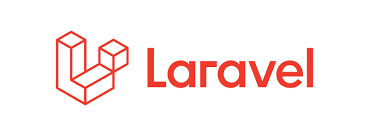Read the article to know more about CSRF token mismatch in Laravel API. At Bobcares, with our Laravel Support Services, we can handle your issues.
What is the CSRF token mismatch in Laravel API?
When performing a POST, PUT, PATCH, or DELETE request to the Laravel application, the CSRF protection middleware of Laravel will normally identify that the CSRF token delivered with the request does not match the token saved in the session. This will result in a “CSRF token mismatch” error. This security measure will guard against cross-site request forgery attacks on the app.

Troubleshooting Steps
Here are some steps we can take to identify and fix the problem if we run into a CSRF token mismatch error when using a Laravel API:
1. Laravel adds the CSRF token to HTML forms created by the @csrf Blade directive for web apps. We must explicitly include the CSRF token in the queries when using an API context if we are performing requests from a client (such as a JavaScript frontend or a mobile app).
2. Ensure that the CSRF token is in the request headers by the client-side code. A field in the request payload or the X-CSRF-TOKEN header is normally where we can discover the CSRF token.
3. Verify that the VerifyCsrfToken middleware is not on routes.
4. Make sure that the API calls, depending on the setup of the app, contain the CSRF token in the proper format in the headers or payload. Make sure that the token we’re supplying corresponds to the one Laravel for the session.
5. In order to keep the session state when making API queries from another domain or subdomain, proper setup of CORS is a must. Since CSRF tokens are linked to sessions, we must manage CORS and session state appropriately if the API requests come from different origins.
6. Make sure the middleware handling the CSRF token is in the appropriate place. The CSRF middleware is by default a part of Laravel’s web middleware group. Make sure that CSRF middleware is used as needed if we are creating our own middleware groups.
7. Check the session driver and cookie settings in the Laravel session configuration. Make sure that the API routes’ sessions are configured to function as desired.
8. Make sure that the CSRF token we are using is still valid. Laravel often produces CSRF tokens with a brief duration. The token can expire if we create it and then make the request after a long wait.
[Need to know more? We’re available 24/7.]
Conclusion
To conclude, the article went over the details and solutions from our Experts for the CSRF token mismatch in the Laravel API issue.
PREVENT YOUR SERVER FROM CRASHING!
Never again lose customers to poor server speed! Let us help you.
Our server experts will monitor & maintain your server 24/7 so that it remains lightning fast and secure.







0 Comments